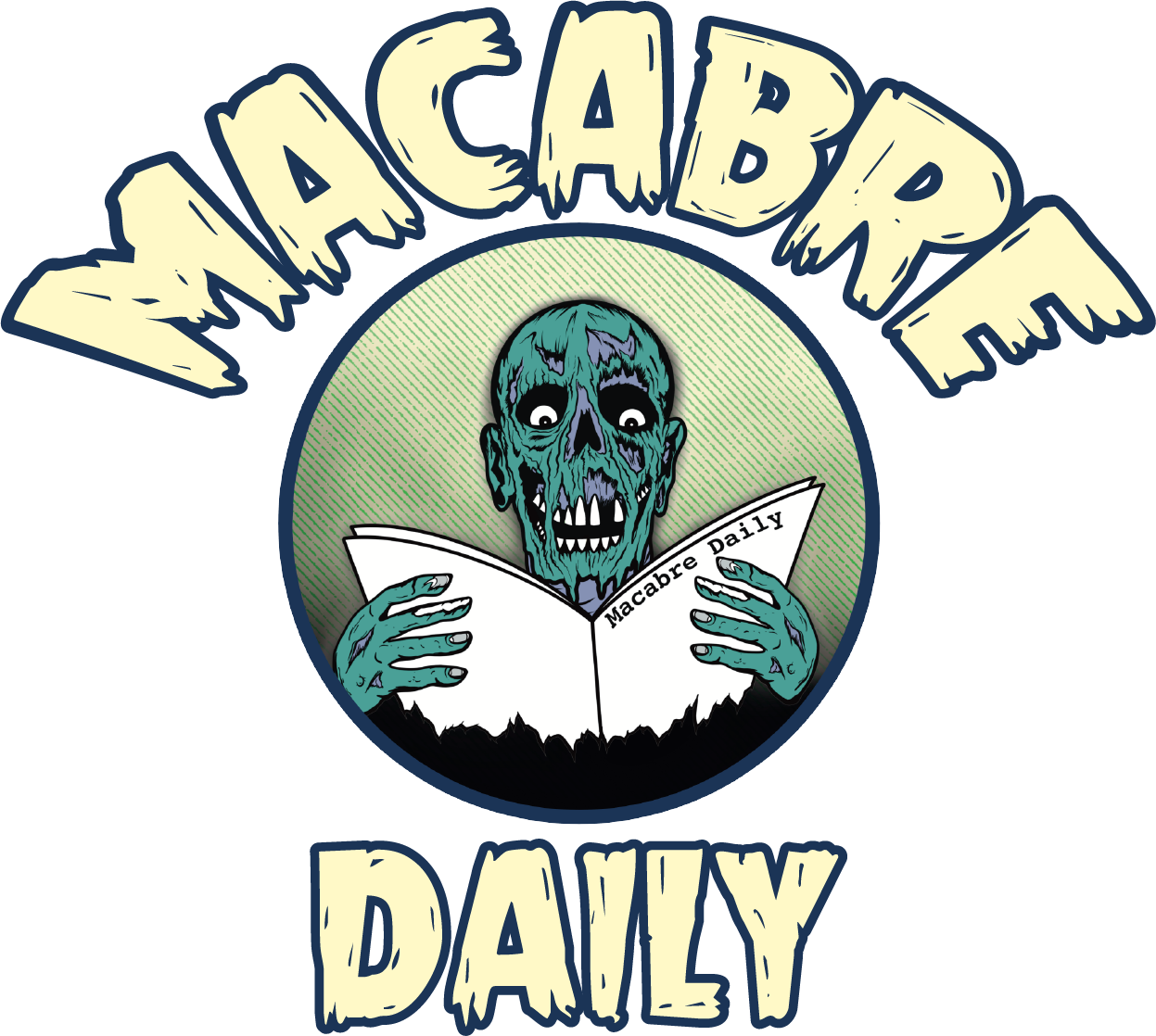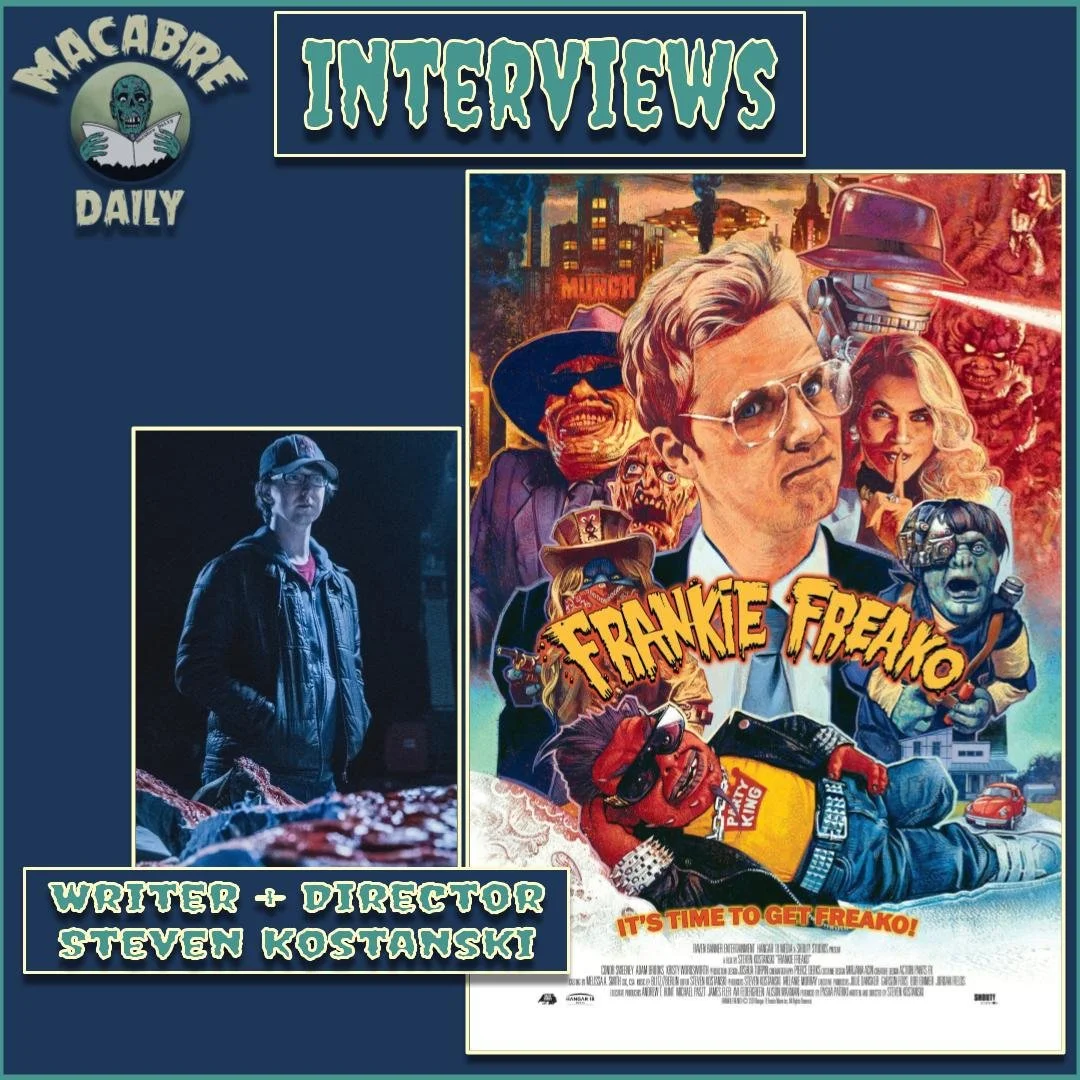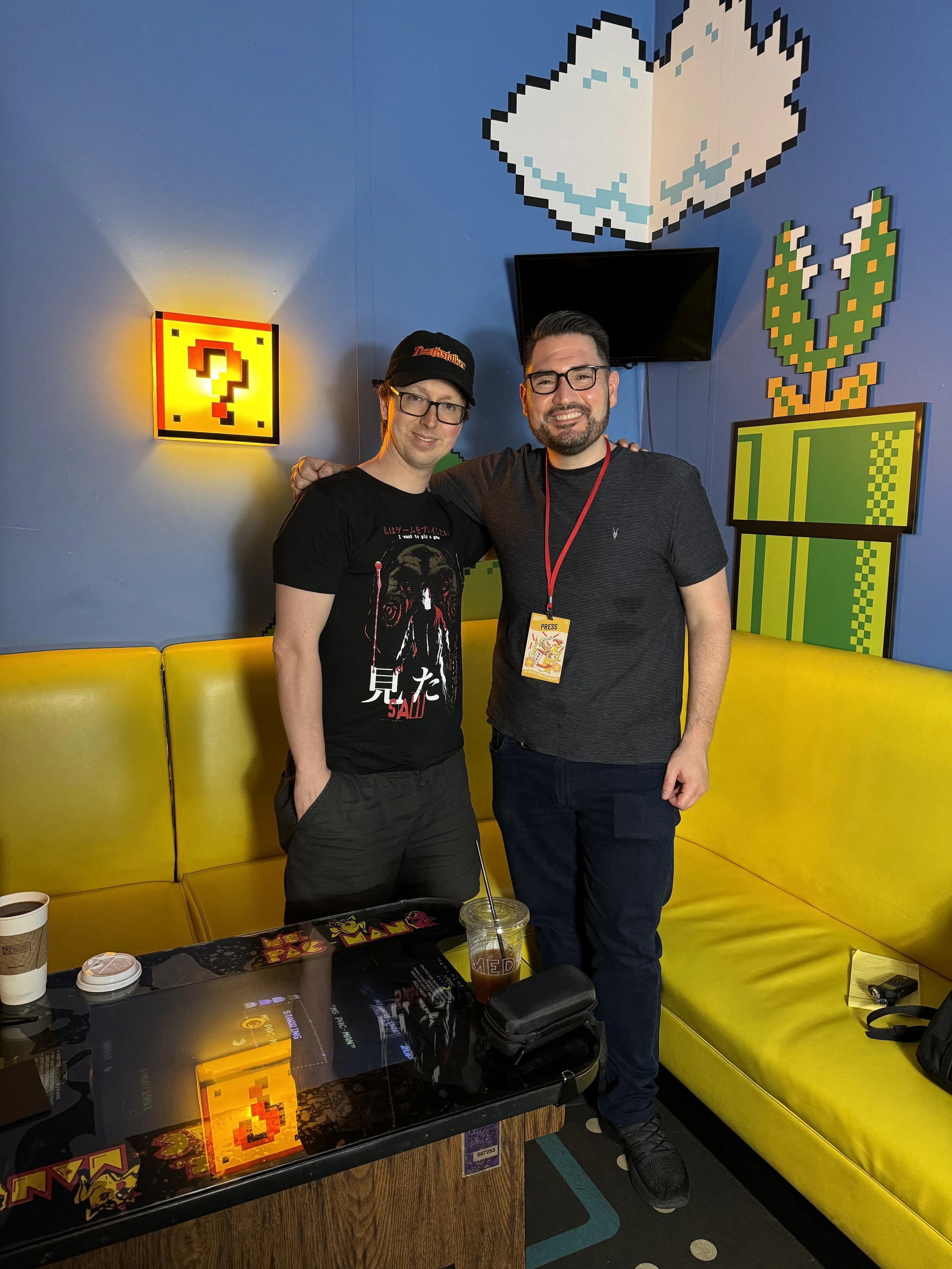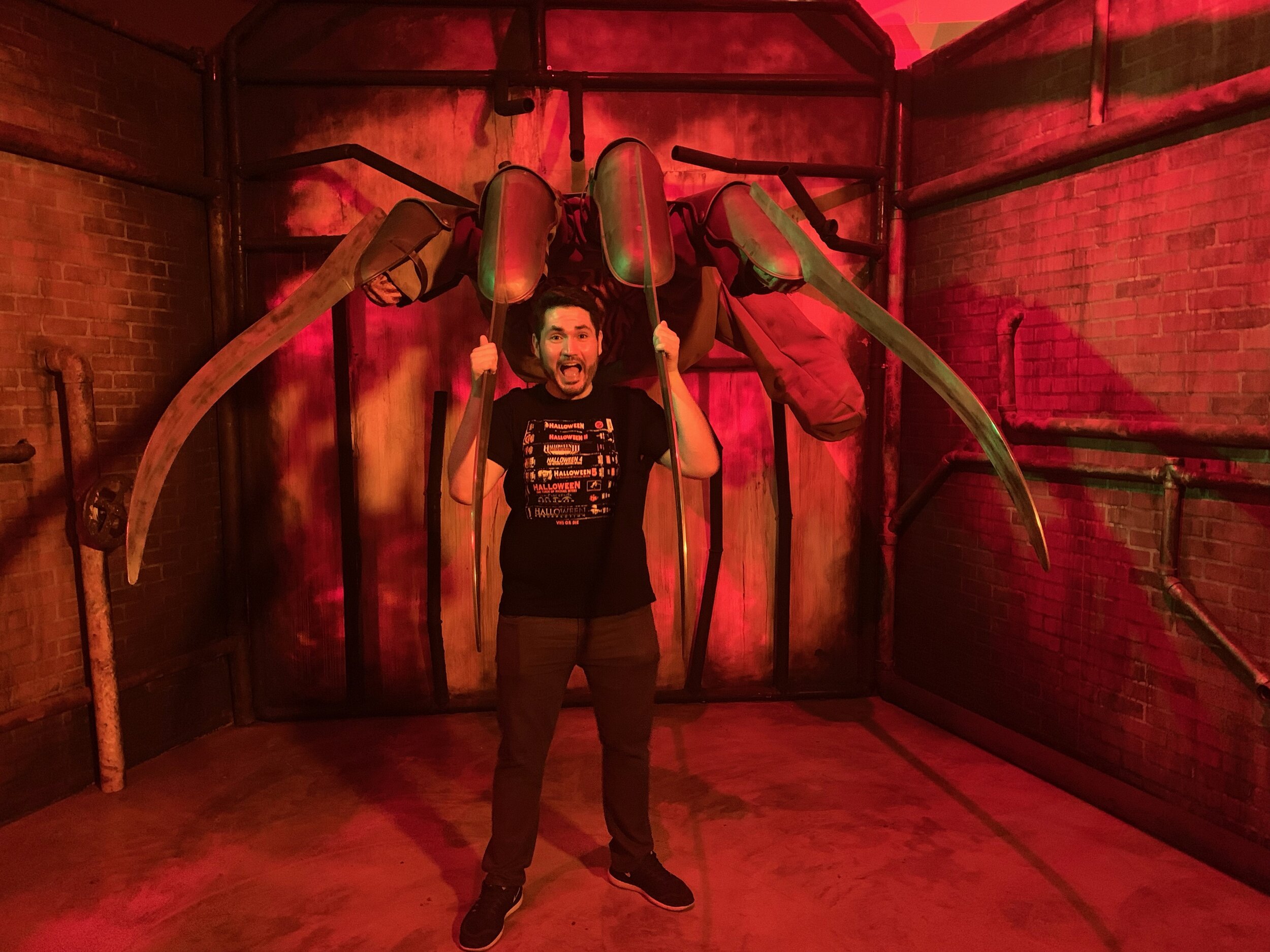FANTASTIC FEST 2024: Steven Kostanski Discusses "FRANKIE FREAKO" (2024) And Brining Raunchy Puppets Back To The Big Screen (INTERVIEW)
Steven Kostanski is just like the rest of us genre fans. He has a deep appreciation for the video store era and finds himself yearning for films like the ones we all grew up with. The difference is, Kostanski is doing something about it. From his early career hits like “Manborg” to more recent fan favorites like “The Void” (not to mention his effects work on some of the biggest genre productions out there), Kostanski has shown an affinity for the films of our youth and made a career out of bringing them to the big screen. During our recent trip to Fantastic Fest In Austin last week, we had a chance to sit down and talk with Kostansi about his upcoming “little stinker” puppet comedy, “Frankie Freako.”
Thank you to the team at Shout! Studios for arranging the interview, and you can see “Frankie Freako” in theaters this Friday, October 4, 2024!
Macabre Daily: Hello, fiends, friends and familiars this is Matt Orozco with Macabre Daily and I am joined by someone who I would consider you probably one of our more recent legends in the genre, Steven Kostanski! Thank you for being here.
Steven Kostanski: Thank you legend. That's high praise.
MD: Considering the run of films you've been a part of from “The Void” to “Psycho Goreman” and now what we're here to talk about today, “Frankie Freako,” at least in our circles, I would say that you were talked about as someone who we are all excited to see what you're doing next.
SK: I'm trying my best to contribute some fun stuff to this genre that I love so much. So I appreciate that.
MD: It shows! I think one of the things that we as genre fans always appreciate is seeing how other fans interpret and take what we know and love and turn it into something new and different. So with that in mind, what was your inspiration for “Frankie Freako?”
SK: I mean, it pulls from a lot of different sources. I've always wanted to make a little monster movie, specifically like a little shithead movie, which I feel like, it's a sub-genre in itself. My director of photography on this film Pierce Derks, who I'm very good friends with, he streams movies all the time. And one night, he was just going through, like, little monster movies. And I just got fixated on this idea of, like, what if I tried making a little monster movie? And we were watching were watching specifically “Ghoulies Go To College,” and I was like, this movie is insane. Why is nobody talking about this movie? It's just like, what if a like, college sex comedy got derailed by a bunch of little monsters? And that really got me hooked on this idea to actually make this happen. Let's get this movie made. And so instead of like, a college sex comedy, “Frankie Freako” was more of like, what if, like, the first 15 minutes of a DePalma movie got derailed by a bunch of little monsters, little party animals. That was really the starting point for Frankie Freako.
MD: It definitely harkens back to movies I remember seeing a lot in video store shelves like “Munchie.”
SK: There’s definitely some “Munchie” in there. Once it’s out into the world, there is a Munchie connection that I will publicly share with people. But, yeah, there are so many little monster movies out there like “Munchie” and “Munchie Strikes Back” that don't really get talked about. So I hope that a bare minimum, this movie gets people seeking out all of those because they're a lot of fun and kind of an under-appreciated genre.
MD: That’s something that you're quite good at, right? If we look at your previous work on “Psycho Goerman,” it's essentially a Power Rangers movie, but make it horror, but also make it family-friendly. So you have this knack, I'd say, for being able to channel what nostalgic zeitgeist is happening at the moment, but also put it in a way that's very authentic and genuine. But I also noticed just looking at just the credits that there's not a big cast or crew on the film. What was that like working with a much smaller crew for something like this?
SK: You’re talking to a guy who used to make movies in his basement with like, three friends, and we will still do this today, make stop motion movies, which are just me by myself at a desk. We went into this one knowing that it would be a smaller project. We didn't ask Shout! Factory for a lot of money for this one because we knew, like I don't say it's a gamble, but it's not like we're not cashing in on “Terrifier,” right?
MD: So there’s no “Frankie Freako” franchise…yet!
SK: It would be a hard sell if I was trying to go to like, Blumhouse or something with this. So yeah, we went into knowing it was going to be a smaller team, it was going to be a bit of a grind to make it all happen. We were just prepared for it, because we all come from the indie world, and the whole team was used to this kind of project. We just buckled down and worked together to make it happen. It was really kind of the best scenario, in my opinion, because you get too big with projects and you lose sight of things very quickly. Things get very overblown and complex. When you have too many people involved in this, it was like, it felt like we snuck it under the radar, and people didn't even know it was happening. And so we're able to be tight and focused with everything we were doing.
MD: I don’t want to say it came out of nowhere, because that's clearly not true more. It did kind of emerge, like, “Oh, wow. I didn't know anyone was working on something like this.” And, you know, even to that end, I'm curious to know how the production schedule is affected by working with predominantly a cast of puppets, because obviously, when you're working with people, you do have a bit more control, or a bit more dynamic of how people react. So what's it like working with puppets and a the shooting schedule? And how do you how long does it take to make something like “Frankie Freako”?
SK: We went into this not even knowing how to do a puppet movie, because I have never done this before, and like all my movies, I just dive in head first hoping that it'll all work out that. That’s the nature of my work in effects. That's the nature of the effects industry too. It's a lot of times you're being asked to create things you've never created before. So that's half the fun to me, is you're going into uncharted territory. So for this we the plan we tried to make was that we'd basically shoot out the cast for the first three weeks, and then the last week of the shooting schedule was turning around on those scenes, like basically shooting the reverse angles of all the puppets. And once the cast has wrapped it's just puppet action, puppets, talking puppets doing stuff, and it worked out okay. The puppets were pretty finicky. I went into this thinking that it would be so much easier than putting guys in creature suits after PG, where it was nothing but creature suits. So it's like makeup. You have to have, like a performer in a suit, and they're getting hot and tired and sweating, and their makeup needs to be touched up. It just, it's a lot. If you have the team for it, it's fine. But you know, when you're working the indie world, it's tough to pull that off. So my thinking was, Oh, these puppets are a third the size of a person, so it's a third the size of the problems. And that ended up being not true at all. We made it work with what we had. It was a lot of figuring it out on the day, making things up and kind of pivoting when a puppet wouldn't work, or, yeah, or something needed to be changed or tweaked. I'm feeling like the next one will go a lot smoother now that we've had this test run of how to do a puppet movie. A lot of things I would do very differently.
MD: So you'd like to return to a puppet-based film again?
SK: I would now that I've done this. I admit, I was pretty worn out by the end of shooting this one. It was exhausting. It doesn't help that I was also getting in there and directing and puppeteering.
MD: So you’re like half of the IMDB credit block then?
SK: It’s also how I like it. I like getting in there. I'm not a director who likes to sit at Video Village ever. I always want to have a handheld monitor, and I want to be standing behind the DOP, like, while they're shooting, and I want to be in there telling the actors what to do, messing with puppets, messing with effects. I just find things flow faster. They flow better. I like being part of the action, and it just keeps that family vibe going. I don't like the separation of being on the other side of a curtain at a monitor.
MD: It takes you away from the fun, I guess, right? It's like looking at something through a screen and just assessing it through only that lens. No pun intended. And being more hands-on is something that probably has more to do with your indie filmmaking roots than anything else, right?
SK: That's the thing. I come from a world of doing everything myself anyway, so I get anxiety watching other people do things. So I've gotten better over the years, and I definitely force myself, for the sake of my mental health, to step back on some things and let people do their jobs. What also helps is that I work with a lot of the same people. I have a team that I'm so happy about. I have a few DOPS that I really love, a physical effects guy, Mike Hamilton, who is also a puppeteer on this film, who I really love. I'm pretty entrenched in the effects community up in Toronto as well. So I have a lot of coworkers who are friends, who I can pull from to make things happen. So, you know, the anxiety of wanting to do everything myself is offset by the fact I have so many wonderful people around me who are good at their jobs, and I can genuinely feel at ease knowing like they're handling it.
Left: Steven Kostanski
Right: Some chud from Macabre Daily
MD: It's easy to trust frequent collaborators.
SK: Well, that's a scary thing with like film and TV that I want to avoid as much as possible going forward is unknown quantities really are the thing that can sink a project pretty quickly. So if you're able to just hire people that you know are good at the job every time and you have experience with them, that's 100% the way to go.
MD: We hear that a lot from a lot from other independent filmmakers who will work with the same DOP or they'll have the same effect of people, because they know that some of the most challenging parts of their production they need to have people that they can rely on who are going to have either similar vision or know how to communicate with them.
SK: Totally. Just the uncharted territory nature of making films. It's like every movie, the whole point is you're trying to tell a story or do something that hasn't been seen before. So you're diving into uncharted waters already, and you want your crew to be people that have experiences you can call on and be like, “Hey, remember that time this similar thing happened and we did it this way?” This time, maybe let's do it this other way, whereas, if it's all new people, you don't really have that dynamic.
MD: And you have to take the time to help get build a language that you both could communicate through.
SK: I find on my movies, especially like when a new person comes on, there is a learning curve of them realizing, “Oh, Steve he's in there, like, doing stuff all the time,” and just knowing exactly what I'm getting in each shot, so I'm willing to compromise on things. Like if 80% of a shot is crap, but there's 20% that's usable and good I'll say, “Great, let's move on.” And some people are like, “Don't you want 100% perfect?” But I know that two seconds I need is there, right? We don't need to endlessly do a thing. I feel like that's a symptom of TV, especially currently, especially big prestige TV. People are scared to commit to being like, I got. We got the shot. Let's move on. They just do it over and over again, just to appease the higher-ups, I guess, to be like, Look, we're making it. We have every possible version you could want, which I feel that's like directing commercials. Where you're just, you're appealing to a client, whereas I think, especially in the indie world, you can't afford to do that way, so you don't have the time to reshoot and reshoot. So, knowing when to when to say we're good and move on, is like a challenge for some people, and there is a learning curve there I find with some crew, but the people who I work with who know me know how I work they know when to speak up. If they're like, “Hey, we should probably do that again, right?”
MD: That shorthand certainly helps with getting moving along at pace, keeping on budget, and on schedule, but also making sure that it's not a complete dictatorship. Like you have people who can share their voices. And it's fascinating to watch your work, largely because, as you said so much is you trying new things each time. I can't help but notice the “Deathstalker” hat which, yes, we are also a backer of and huge fans. So I’m excited to see what you're doing there. But I'm also curious to know how has each film you've made contributed to the next one you're going to make,? They're all different, tonally and narratively, but also effects-wise.
SK: It's my goal of making that video store shelf that I thought was going to exist in adulthood when I was a kid. Like when I finally unlocked the keys to the horror section of the video store and was able to rent all this crazy stuff and grabbing “The Hills Have Eyes” or “Phantasm”, “Evil Dead”, just everything, just absorbing all of it. Then thinking as a kid like, “Man, if this is what I'm getting now, what am I gonna get in 20 years?”
MD: Like hoping for a “Munchie 7.”
SK: Yeah! And this is not a dig on current cinema, but media flows and evolves and changes, and I just didn't really get the stuff that I wanted. So my goal is to just make all the stuff that I wanted to have, and I want the end of my career to be able to have a shelf full of hopefully VHS versions of every movie and be like, “Okay, I made a little monster movie, I made a horror fantasy movie, I made a cosmic horror movie. I made the Tokusatsu family sci-fi comedy,” and just feel like I delivered that promise to kid Steve that I’m gonna make these movies happen somehow.
MD: It’s a very John Carpenter way of approaching filmmaking. This is what I like, and this is what I want to see, so I'm just gonna go make that thing. I speak for our viewership, but also, I think the broader community by saying it's what keeps us coming back to horror and genre films. We get new voices and experiences, people that either share our own sense of nostalgia and want to continue that in their own way, or they have something completely wild and different we've never seen before. I mean, I think no one could ever think to themselves that psycho Gorman, you know, that would be a movie someday. It's like, Wait a minute. This is a horror Power Rangers with a kid protagonist. What's happening here? So, is there anything that you still, you know, is there anything in that video store list that.
Stay up to date with “The Dark Side Of Pop Culture” by following Macabre Daily on Instagram, Facebook, and Twitter.














